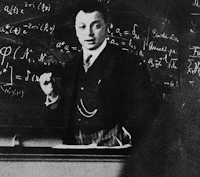"Atomic" theory, or "atomism" was first formulated by the Vedic teachers of ancient Hinduism and was carried forward not only into the Advaita Vedanta, but also into Greek philosophy, in large part because Alexander the Great pushed his army all the way from Greece to the Gates of India.
My favourite ancient Western philosopher (along with Socrates, and his pupil, Plato) is the Roman Emperor and neo-Platonic philosopher, Marcus Aurelius. In his Meditations (at Book 6:25) Aurelius writes:
"Think of the number of things, bodily and mental, that are going on at the same moment within each one of us; and then it will not surprise you that an infinitely greater number of things - everything, in fact, that comes to birth in this vast One-and-All we call the universe - can exist simultaneously therein."For a meditation nearly two thousand years old, it is awe inspiring that Marcus Aurelius' Meditations (like "Indra's Many-Jewelled Net" in Hinduism) cover the same truths as the most modern metaphysical teachings (like Andrew Cohen's "Evolutionary Enlightenment"), as well as those of cutting edge physics (as in Bell's Theorem, which shows there is "entanglement" or the 'faster than light/influence at a distance' phenomena which haunted and frustrated Einstein for the balance of his career.)











